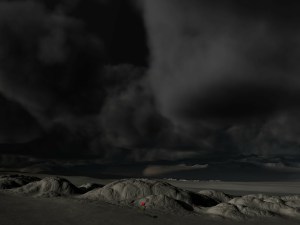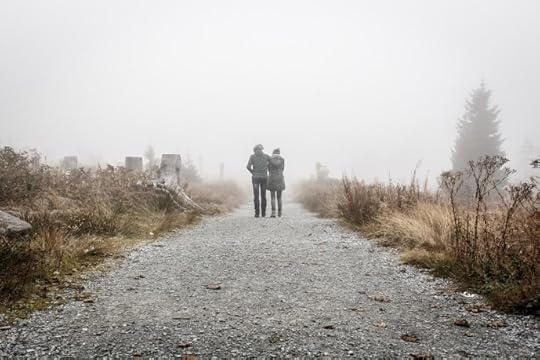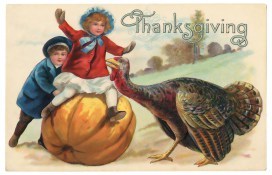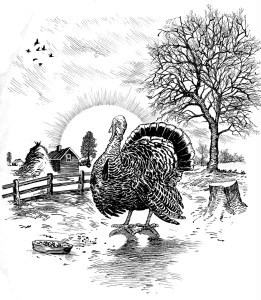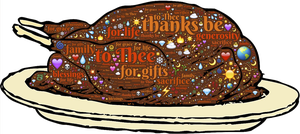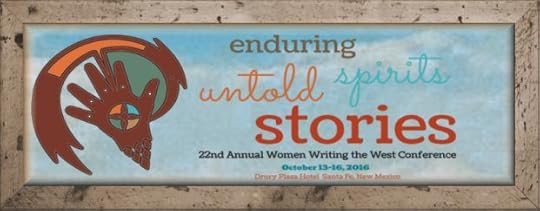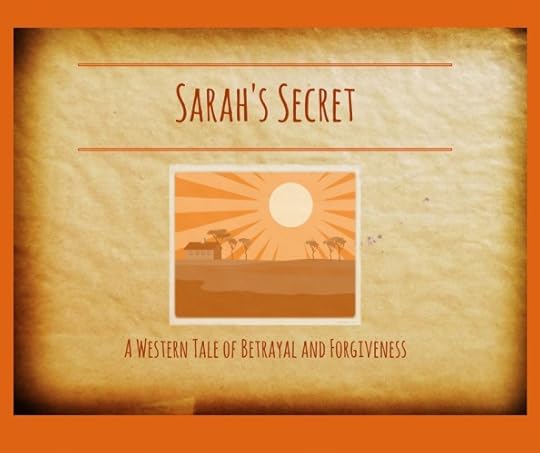Beverly Scott's Blog, page 10
December 20, 2016
Book Review: “Role Montage: A Creative New Way to Discover the Leader Within You” by Jan Schmuckler
Reviewed by Bev Scott
[image error]Learning how to be a leader is a challenge for newly appointed managers or supervisors and finding a mentor to help is often not possible. Jan Schmuckler has provided us with a clear and helpful process to find our own leadership style within ourselves. How I wish I had such a guide when I was a new, young manager! With an emphasis on self-awareness which is key to becoming a successful leader, the reader is guided through the steps of identifying the qualities in others both real and fiction that we admire, and creating the “montage” of the leader we would like to be.
This is a must have guidebook for every new or developing leader.
Author information: Jan Schmuckler.
December 13, 2016
The Season of Sharing or the Season of Taking Back?
in these dimmer days
when gloom and doom
conversations occupy the tables
in every corner of concern?…”
(From: What Matters Now by Minx Boren)
It is the “season of sharing” and the “season of hope.” Hope for peace and a better future. Yet, I find myself, like many of those around me experiencing these as days of “gloom and doom.” This year of blame, name calling, fabricated lies and divisiveness is coming to an end. I would like to feel optimistic and confident about next year, about our future. But it is hard.
In the research for my novel based on the lives of my grandparents, I was inspired by the grit and determination of the pioneer homesteaders who lived in lonely isolation on the prairie, daring to find hope, support and community. They held values of generosity and sharing, even among those with very little themselves like my grandparents. Giving to those most needy was a common practice. For homesteaders who often lived miles from their nearest neighbors, Christmas was a time of sharing and gathering in community. I imagine my grandparents and their children dressed in their “Sunday best” traveling by horse and wagon or by sleigh to visit with neighbors. Perhaps they gathered at the small community church to meet for religious services, share potluck meals and sing carols around a piano or accompanied by a guitar or a banjo.
This is our heritage of the “season of sharing,” remembering those less fortunate and sharing what we have in community. In the analysis of the election results, we are hearing that the messages which tapped into hunger and nostalgia for our past were successful. Minx Boren captures some of the longing in the next stanza of her poem…
“What counts now
when countless folk
feel harried and hungry
for the richness of more
fulfilling times
when gold stars of hope
are needed to illuminate
their heavens and give weight to
their wishes?…”
 Unfortunately, that nostalgia reflected in the election results is for a past where the “richness of more fulfilling times” offered narrow benefits primarily to the privileged who were mostly white and male. Many of us do not want to return to that past. We believe in the advancement of our human rights and we appreciate our health care and our creature comforts. I have no nostalgia for my grandparents’ life in an underground dugout, traveling by horse and wagon and suffering illness and the early death of loved ones. However, I do find myself longing for the prairie heritage of community, willingness to share and to offer freely given support to those in need. That heritage contrasts with the individualism, meanness and greed… what seems to me to be the “season of taking back.” Looking for the “gold stars of hope,” described in Boren’s poem, is very challenging as I listen to the pronouncements of our new President and the appointments he is making to his cabinet.
Unfortunately, that nostalgia reflected in the election results is for a past where the “richness of more fulfilling times” offered narrow benefits primarily to the privileged who were mostly white and male. Many of us do not want to return to that past. We believe in the advancement of our human rights and we appreciate our health care and our creature comforts. I have no nostalgia for my grandparents’ life in an underground dugout, traveling by horse and wagon and suffering illness and the early death of loved ones. However, I do find myself longing for the prairie heritage of community, willingness to share and to offer freely given support to those in need. That heritage contrasts with the individualism, meanness and greed… what seems to me to be the “season of taking back.” Looking for the “gold stars of hope,” described in Boren’s poem, is very challenging as I listen to the pronouncements of our new President and the appointments he is making to his cabinet.
He is taking back hope, dreams, protection, human rights and probably jobs, too. No wonder we are discouraged and dismayed by what this picture of the future suggests. However, I believe that we must not succumb to numbness, depression and despair that will keep us from envisioning the opportunities of what a brighter future could be. We must not normalize greed, meanness and bigotry. The future I want for us is a future that requires us to get involved, take action, build community, keep the vulnerable safe, speak up for individual rights and in the spirit of giving, be as generous of heart, soul and material goods as we can be. Boren says it well.
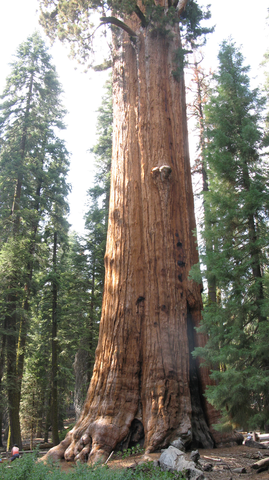 “…What matters and what counts
“…What matters and what counts
are imagination and inspiration…
and a roll up our sleeves movement
of such magnitude that the future
can hear us coming
with our heads held high
above the cloudy predictions
and our knap sacks filled with
our gumption and our grit
our gifts and our gratitudes –
the building blocks of new
cornerstones of possibility.”
Let’s create our brighter future!
(Poem excerpts from What Matters Now by Minx Boren, poet and author.)
December 8, 2016
Book Review: “Fire Lilies” by Cynthia Leal Massey
Reviewed by Bev Scott
The story of two beautiful and rebellious sisters in early twentieth-century Mexico hooked me with the opening chapter, and continued to move at a fast, engaging pace. The loves and passions of these two sisters is intertwined with the political intrigue and upheavals of the Mexican Revolution. The author provides an engaging historical context which adds depth and interest to the unfolding romances of Dolores and Alicia.
Dolores, forced by her father to marry an older man who is cruel and demanding, falls in love with a vaquero working on her husband’s hacienda. She takes amazing risks for her life, defies the expectations of her family’s social class and struggles to control the carnal desires expressed by her sister’s husband.
Alicia, the younger sister refuses a marriage arranged by her father and marries the man she loves but with lower social standing. Her love and trust of her husband results in the birth of fifteen children which is almost beyond belief, but, perhaps tolerable if one has servants. Ultimately, she is forced to cope with unfaithfulness, the disruption of the revolution, death and the loss of her comfortable way of life.
I highly recommend this historical romance set in a little known period of Mexican history.
More information: Cynthia Leal Massey
November 17, 2016
Hope is Like a Country Road
“She Made Him Vote for Hillary!”
The weekend before the election, my friend Barbara and I joined the other 1500 Californians in Reno, Nevada to canvass for Hillary for President and for Catherine Cortez Masto for Harry Reid’s seat in the Senate. Early voting had already captured many votes. But we were charged with reminding those who hadn’t voted to go to the polls on Tuesday and vote Democratic. Canvassing is discouraging work because many people are not home or won’t answer their doorbells.
But we had some good conversations and one of the most memorable was a young man who drove up in his pick-up after I had left some literature at his door. He recognized us as canvassers, asked us to wait a moment while he rummaged in his truck. He emerged with his “I voted” sticker and proceeded to tell us his story. He was a registered Republican but he declared that Trump was too crazy to be our President, so he voted for Hillary. After we thanked him for voting, we encouraged him to tell his friends and family. He laughed and said, “My brother wasn’t going to vote, but my mom told him he had to vote she and made him vote for Hillary.” We shared a common belief in that light-hearted moment before we walked on to the next house.
We Believed His Language But We Did Not Take Him Seriously
I returned from Reno feeling cautiously optimistic. Even as I watched the returns Tuesday evening as the states in the eastern time zones were called for Trump, I continued to be hopeful. But as we all learned by Wednesday morning, my hope and optimism were totally wrong. As former San Francisco Mayor Willie Brown mentioned in his column last Sunday, people who voted for Trump did not believe his incendiary language but they took him seriously. The rest of us who voted for Hillary believed his incendiary language but we did not take him seriously.
We now have to take him seriously. He will be the next President of the United States. Many like me are still in shock and disbelief with shattered hopes of seeing Madam President in the White House. I am fearful that the advances we have made for marriage equality will be lost, that the racism, misogyny and xenophobia which Trump gave permission to express will become commonplace, that divisiveness, hostility and attacks on those who are vulnerable and different will be accepted. In fact, I fear that anyone who doesn’t meet or support the standard of the traditional powerful white male will be under siege.
Wondering Where Hope Lies
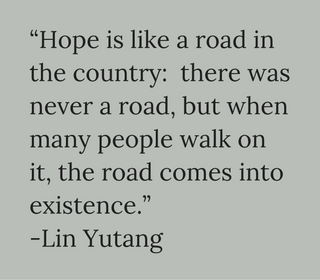 Friends and family in other countries encouraged my spouse and I to consider leaving the US and move to Ireland or Canada. In addition, there are many calls to action from causes and individuals in my email and on social media. I personally am not ready to take action yet. I am still in the process of figuring it out, trying to understand those who believe so differently than I do, wondering where hope lies.
Friends and family in other countries encouraged my spouse and I to consider leaving the US and move to Ireland or Canada. In addition, there are many calls to action from causes and individuals in my email and on social media. I personally am not ready to take action yet. I am still in the process of figuring it out, trying to understand those who believe so differently than I do, wondering where hope lies.
Although I don’t know yet what I will do, I am sure I need to stay here in this country. I will need to gather with other like-minded souls, to speak out, to take action, to take a stand.
I will eventually find hope. This quote by Lin Yutang touched me. “Hope is like a road in the country: there was never a road, but when many people walk on it, the road comes into existence.”
I am beginning to walk the road. Will you join me?
November 8, 2016
The Tradition of Thanksgiving
Did you know that Thanksgiving did not become a permanent official national holiday until 1941 when Congress established the fourth Thursday of the month of November as Thanksgiving Day?
Today, Thanksgiving is a most American holiday tradition in which we gather with friends and family to share a sumptuous feast and express our gratitude. Many of us assume Thanksgiving in North America began with the Pilgrims story of Thanksgiving. The roots of our Thanksgiving can be traced back to the ancient traditions of celebrating the bounty of the harvest. I also discovered there were earlier ceremonies by other British colonists and Spanish explorers in North America before the Plymouth celebration of 1621.
Although Thanksgiving in the colonies became a regular event by the middle of the 17th century, the first national Thanksgiving was proclaimed in 1777 by the Continental Congress. The early Presidents continued to proclaim a national day of Thanksgiving but it was not an official holiday. In fact, by the middle of the 19th century Thanksgiving was limited to individual state observances and had evolved from the religious and civil day of commemoration and giving thanks to a family holiday of feasting. President Lincoln was convinced to declare a national holiday in 1863 in an effort to unite the war-torn country. Lincoln’s successors proclaimed a Thanksgiving Day each year until it became a permanent official holiday in 1941.
In researching my family history and writing the story of “Sarah’s Secret,” I have often found myself thinking about life in the late nineteenth and early twentieth centuries compared to my life today. Since I did not inherit any family traditions of Thanksgiving, my curiosity led me to explore some of the history of one of this favorite of American holiday which combines the ancient traditions of harvest festivals and the religious observances of the Puritans grateful and giving thanks for their survival after a year of sickness and scarcity.
Without any family stories or traditions, I turned to my imagination about how my grandparents might have celebrated Thanksgiving Day. Since it was not a firm national holiday and observed differently by state, my grandparents might not have even celebrated Thanksgiving as struggling homesteaders. Certainly, after my grandfather died leaving my grandmother in dire and impoverished circumstances, her ability to provide an extravagant feast would have been very limited. Yet, the tradition of acknowledging God’s blessings, giving thanks and expressing gratitude would have been important to my grandmother. I imagine that when the President of the United States did declare a day of Thanksgiving, which may or may not have been in November, that she probably commemorated the day. She may have cooked something special, maybe a wild game or fowl caught by my grandfather or her oldest son. I am convinced that she would ensure that she and her family offered a prayer of thanksgiving for the blessings in their lives. Since her birthday was November 24th and often fell on Thanksgiving, I also imagine that she probably ignored or discounted any celebration of her November birthday as too frivolous and extravagant.
This Thanksgiving, I am grateful not only for my comfortable twenty-first century life, but I am also grateful for the opportunity to write about the strong courageous woman who was my grandmother. I will honor her especially since Thanksgiving falls on November 24th this year. I have so much respect for this proud woman who was left a widow and raised her five children while she struggled with illness and poverty.
Do you have inherited family traditions on Thanksgiving? What do you imagine your grandparents or great-grandparents did to celebrate a day of family feasting or to express gratitude and give thanks in their faith on Thanksgiving Day?
(A previous version of this article was published in my blog “The Writing Life,” in 2015.)
October 20, 2016
“Women Writing the West” Conference in Santa Fe, New Mexico
“We are all profoundly creative” – Julia Cameron
The amazing Julia Cameron who has written over forty books, opened the conference with her keynote, “The Right to Write.” Author of The Artist’s Way, she is a novelist, playwright, songwriter and poet. She has credits in the theater, film and television. She is incredibly prolific!
She’s a very talented and creative writer, but she argues that “we are all profoundly creative.” But how does she find the time to be so creative in writing in so many genres? She suggests that time is not the answer nor the question. And she laughs, while she confides to us that she is going to let us in on her secret.
Women Writing the West is an organization founded twenty years ago
to support authors and other professionals in promoting the contributions made by women to the history, culture and growth of the American West. More than simply a recognition that women played broader and more complex roles than being wives or prostitutes, the new view of the Women’s West speaks to the diversity of women of all cultures and all time periods. It acknowledges the rich variety of ways women responded to, and continue to respond to, the western experience. The Women’s West is based on a tradition that includes such fine writers as Willa Cather, Mary Austin, B.M. Bower, Mari Sandoz, Dorothy Johnson, Juanita Brooks, Laura Ingalls and Rose Wilder, and Helen Hunt Jackson. Women Writing the West exists to nurture today’s writers of the Women’s West, and those to come.
Since I’ve been writing a Western tale inspired by the lives of my grandparents, I wanted to attend this conference to find kindred spirits, other women writing about women in the West. I was not disappointed. I met women who were still struggling to write their first book, women who were still doing the research and women who had written several successful books. Everyone I met was welcoming, inclusive and encouraging. Women Writing the West is a supportive community.
The two-day annual conference held this year in Santa Fe, was structured to cover the Business of Writing and the Art of Writing. On the Business of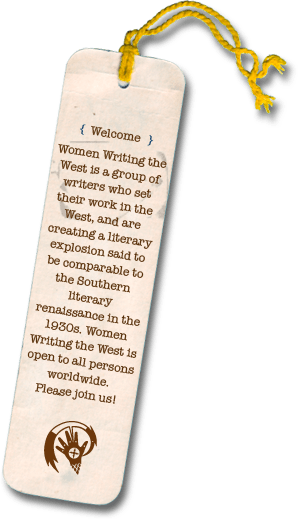 Writing day we learned the rules of stand-out covers, the tax responsibility of authors and how to get a book into the library market. The Art of Writing was more memorable to me because it built on Julia Cameron’s secret tool.
Writing day we learned the rules of stand-out covers, the tax responsibility of authors and how to get a book into the library market. The Art of Writing was more memorable to me because it built on Julia Cameron’s secret tool.
What is the secret? Morning Pages: three handwritten pages at the beginning of the day in which we can dump all of the extraneous thoughts that cross our minds. “I forgot to call Sally back.” “I need to buy milk today.” “Why didn’t Jim tell me about his reservations?” Morning Pages are a tool to clear the mind and all the dark corners to help us be more conscious and focused as we move through the day. Morning Pages provide permission to write anything without worrying about grammar, punctuation, wording. Morning Pages helps to minimize our internal critic. The brilliance of Morning Pages according to Julia is that they can free us from internal censorship and perfection.
During the Art of Writing day other presentations picked up the theme of negative self judgement. One presenter, an author of several books, Jane Kirkpatrick called this self-talk “harpy chirping.” We found ourselves in reassuring company as we realized that most everyone had “negative harpies,” that internal judge who mocks our work with the stories we tell ourselves. “I am not as talented or creative as ….” Or, “My writing is not good enough to submit for publication.” Or simply, “I can’t write like that.”
Morning Pages is one tool to help us get those negative stories out of our minds and enable us to focus on writing. Another suggestion is to focus on the goal which we each have when we began our writing. Another option is to repeat “I, ____, am a creative writer”, inserting your own name, each time that negative judge shows up.
As writers, our goal is writing, writing the best we can. It is not to become as Julia told us, the “curator of the Museum of Perfection.” Instead, find your “believing mirrors,” people who mirror back to ourselves as strong, powerful and creative. And use the tools of Morning Pages, focusing on the goal and reminding ourselves that we are creative writers.
What tools or tips do you have to minimize the negative self-talk and the internal critic?
(Note: don’t forget to sign up as a VIP Reader for my book “Sarah’s Secret.” You’ll get sneak peeks at chapters, pre-publication, and more!)
September 29, 2016
Get a Sneak Peek of Chapter One: Pre-publication Special for VIP Readers
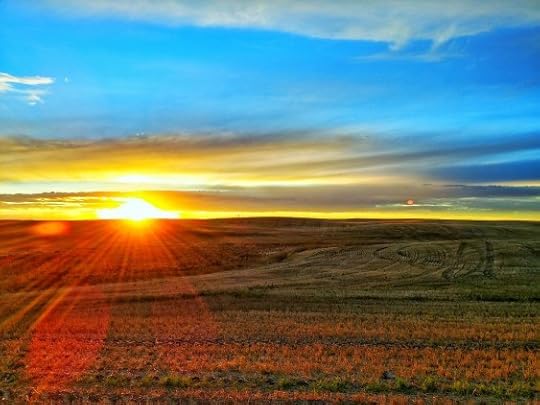
JOIN MY VIP READERS. GET A SNEAK PEEK!
READ CHAPTER ONE A PRE-PUBLICATION EXCLUSIVE
To sign up as a VIP Reader and get your exclusive preview of my book, sign up here:
My debut historical fiction will be published in a few weeks.
TITLE: SARAH’S SECRET: A WESTERN TALE OF BETRAYAL AND FORGIVENESS
As friends, supporters and readers of my blog I want to give you an opportunity for this exclusive offer to read early chapters of the book. So please sign up now to become a VIP Reader! Announcements and more chapters will be available in the future.
Please share with your friends. Thank you for your support. I hope you enjoy Chapter One.
September 1, 2016
Book Review: “Dakota: Or What’s a Heaven For” by Brenda K. Marshall
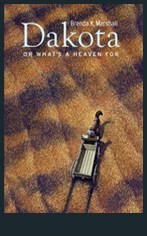 Reviewed by Bev Scott
Reviewed by Bev ScottThis complex historic epic brings together politicians, the Northern Pacific Railroad, land-hungry men, European immigrants, especially Kristen and her family from Norway, with the main protagonist Frances Bingham in the Dakota Territory of the late nineteenth century. Frances is married to Percy, an educated by lazy man addicted to his flask of brandy. They live in Mr. John Bingham’s house (Percy’s father), with his disabled sister Anna, who Frances admires and longs for unconventional intimacy. Kristen, who becomes the housekeeper, offers her naive observations directly to the reader which reveal many hidden truths of the story. Frances manipulates the members of the household to achieve her own desires only to find in the end that she is rejected, turned away and without any means of support. The story describes the political and economic intrigue and greed which drives the personal and social lives of the Bingham family while crushing many poor immigrant farmers.
The characters are finely drawn by Marshall, leaving the reader with a sense of personal knowledge of not only their behavior but also their motivations, emotions, and secret longings. The descriptions of the landscape provide a photographic image of the Dakota Territory at the time. The tales of manipulation and the exercise of power by the political and economic elite offer a fascinating historic context despite the sometimes boring descriptions.
I found this book to be engaging and engrossing. I highly recommend it to anyone who enjoys historical fiction and is willing to learn from the complex historic context of the story.
August 30, 2016
Choosing to Leave a Legacy
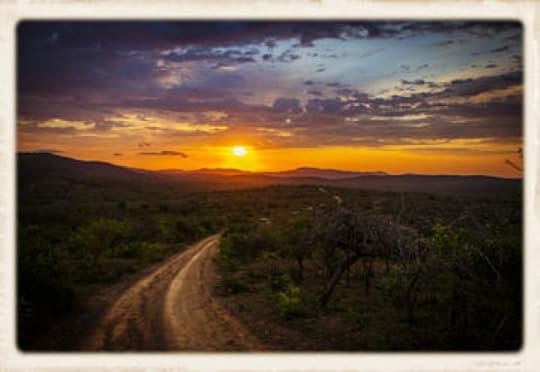 Do you wish you knew more about your grandparents or the generations before them? What do you know about the history of your ancestors? What is their legacy for you?
Do you wish you knew more about your grandparents or the generations before them? What do you know about the history of your ancestors? What is their legacy for you?
I have felt regret and wished I had asked more questions, solicited more stories and learned more about the lives of my parents, grandparents and the ancestors before them. That wish has led me to search for the story behind my mysterious grandfather, uncover the rumored family secrets and capture the story of my paternal grandparents’ lives in fictionalized form.
The story title “Sarah’s Secret: A Western Tale of Betrayal and Forgiveness” is a legacy I want to leave for my daughter, grandsons and extended family. In addition, time with my grandsons, sharing family stories and taking them on adventures is a legacy, too. I hope they remember time spent with Grandma for future guidance and reminiscing.
I learned a few years ago legacy is not necessarily limited to the personal memories others have of us when we die but that we can leave an intentional legacy designed before the end of our lives to support future generations. I updated, as a second edition, a professional book which was a concrete and practical way of providing guidance to future young professionals. It also provided me a way of reflecting on my own years of experience as a consultant, capturing my learning from both the successes and failures and offering some insight and perhaps wisdom based on that experience. That book has served as a professional legacy for my years as an organization and leadership consultant.
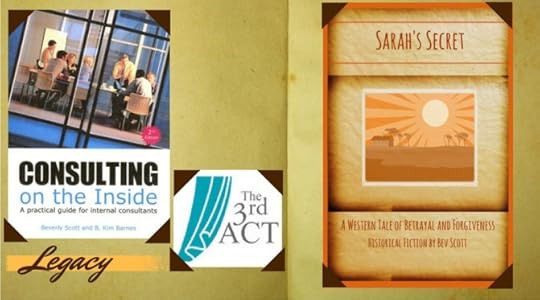 Another intentional professional legacy I am leaving is “The 3rd Act” program I co-created and turned over to my business partner in 2014. As the bulging demographic of baby boomers now reaching 60 continues, they will be responding to the question that poet Mary Oliver asks, “Tell me, what do you plan to do with your one wild and precious life?” In researching the work on positive aging for The 3rd Act, we found that investing ourselves in activities or causes outside ourselves, is one of the more significant contributions to healthy aging. Thus I hope The 3rd Act, as one of my legacies, supports the quest of coming mature generations for their intentional legacies.
Another intentional professional legacy I am leaving is “The 3rd Act” program I co-created and turned over to my business partner in 2014. As the bulging demographic of baby boomers now reaching 60 continues, they will be responding to the question that poet Mary Oliver asks, “Tell me, what do you plan to do with your one wild and precious life?” In researching the work on positive aging for The 3rd Act, we found that investing ourselves in activities or causes outside ourselves, is one of the more significant contributions to healthy aging. Thus I hope The 3rd Act, as one of my legacies, supports the quest of coming mature generations for their intentional legacies.
And finally, there is a will, the document that many of us think of when we hear the term “legacy.” Somehow for me, this is the least significant component of my legacy. My material and financial resources bear little connection to the person I am, to the story inspired by the lives of my grandparents, the contribution I have made to learning, making the world a better place or raising a daughter and influencing her children. For now, I hope my novel, my professional books and articles, The 3rd Act and personal time spent with family and community organizations are all memorable legacies. And there may be more to come.
What is your legacy? Have you given thought to intentional creating your professional or personal legacy? What will you leave for your family and the generations that follow? What is your intentional legacy?
(An earlier version of this blog was posted in February 2014, and a longer version was published in “Seasonings: A Journal of Senior OD Practitioners,” Volume 7, Number 1, Winter 2010.)
August 22, 2016
My Final Book Title
A final title! I am excited! Thank you to all of your who contributed ideas, re-wording, themes and ideas.
Sarah’s Secret: A Western Tale of Betrayal and Forgiveness
The book title is so important. It must compete with all the other options available to readers…other books as well as other activities. The title must engage potential readers and interest them in reading this book. It needs to show up in search engines and be enticing on the bookstore shelves.
Beyond all this competition, I want a title that reflects the story being told. A story from the West and homesteading days, a secret never revealed and Sarah’s emotional journey. I remember reading a book a few years ago with a title that was very misleading given the content of the book. Perhaps it was chosen for search engine optimization but the inconsistency left me puzzled. Consequently I wanted to hue closer to the actual story, even if it doesn’t have all the key words for search engine optimization.
Thank you for helping me choose a title that comes as close as I think possible to these criteria:
Sarah’s Secret: A Western Tale of Betrayal and Forgiveness.
Now on to the cover design.


